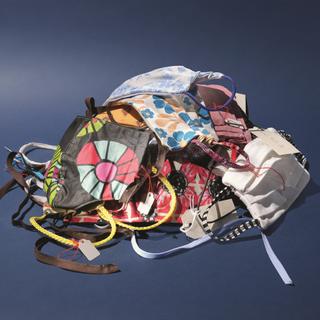


Covid-19, five years on: Objects and stories through which to remember lockdown
Your storiesA new book brings together photos of objects collected by French people during the pandemic and their stories of daily life at that time.
How do we maintain the memory of lockdown? As soon as the French were confined within four walls, anthropologist Laëtitia Atlani-Duault, a specialist in political, humanitarian and health crises, understood the need to study how we collectively would remember this singular and sometimes traumatic period.
In March 2020, in her room, she imagined the memorial project that in May would become the Covid-19 Ad Memoriam Institute at Paris Cité University. She launched a vast call for testimonials, asking French people of all ages and origins to write about their experiences of the pandemic. She worked with the collection undertaken by the Mucem in Marseille, which invited French people to send in objects representative of their daily lives during the pandemic.
The fruit of these two memorial collections, combined with drawings by former Le Monde cartoonist Plantu, has been published for the first time in a book by Atlani-Duault, Covid-19 Ad Memoriam. Fragments pour les mémoires ("Covid-19 Ad Memoriam. Fragments for memories). Like a small paper museum, or a "collective family album" as one reader put it, the objects and memories recount a daily life turned upside down, constraints transcended with humor and creativity, movements of anger and outbursts of solidarity. The writings and objects also tell of the doubts and sufferings of destinies definitively diffracted by the pandemic and still bearing its traces.
To mark the fifth anniversary of the start of lockdown, Le Monde is publishing a series of photos and testimonials from the book. "Whereas, today, certain discourses seem to be preparing us for the eventuality of a new 'crisis' in Europe, this time no longer linked to a virus but to threats to defense and security, and the need for French society to prepare for it, with a vocabulary that resembles that used in 2020 ('war,' 'resilience'), it's important not to forget, and to learn from what we have all experienced," said Atlani-Duault.
You have 71.68% of this article left to read. The rest is for subscribers only.
